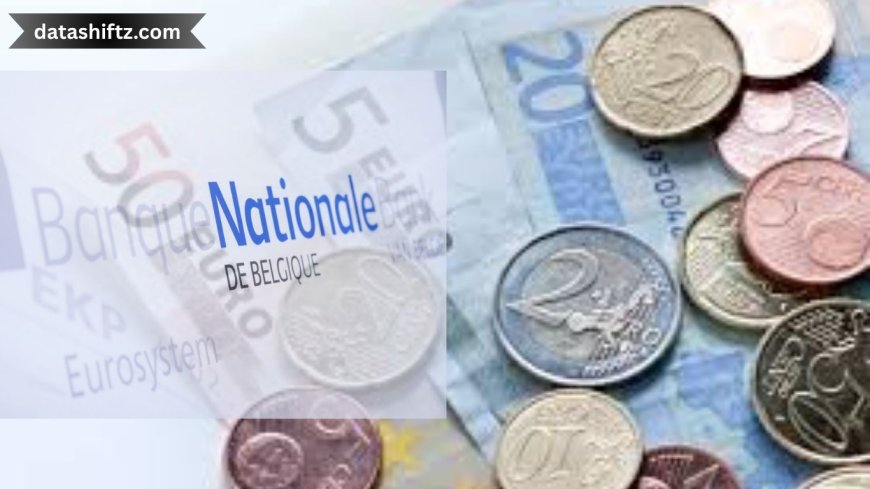A Decade of Decline: Why Belgium's Richest 10% Are Losing Wealth

Changing Fortunes at the Top of the Economic Ladder
In a shift that defies the usual narrative of rising inequality, Belgium’s wealthiest 10% now possess less net wealth than they did a decade ago. This surprising development challenges the assumption that the rich always grow richer and offers insight into deeper shifts within the country’s financial and social landscape.
What’s Causing the Wealth Decline?
Economic Shocks and Market Fluctuations
From the aftermath of the global financial crisis to the COVID-19 pandemic and ongoing geopolitical instability, Belgium’s wealthy have faced unpredictable markets. Their substantial exposure to high-risk assets—stocks, luxury real estate, and foreign investments—has made them particularly vulnerable to these shifts.
Tax Reforms and Redistribution Policies
Belgium has moved toward greater tax equity. New levies on securities accounts, tightened inheritance rules, and progressive capital gains measures have chipped away at the top decile's net worth. Unlike middle- and lower-income households, the rich felt these changes more directly.
Cooling Property Values
Real estate prices, particularly in upscale neighborhoods and second-home markets, have plateaued or declined. For wealthy households with significant property investments, this represents a substantial reduction in net worth growth compared to the booming early 2010s.
Belgium’s Wealthiest in Numbers
Let’s look at how the net wealth of the top 10% has changed over the last ten years:
Table: Net Wealth Comparison of Belgium’s Top 10% (2014 vs. 2024)
| Year | Avg. Net Wealth (Top 10%) | 10-Year Avg. Annual Change | Major Influences |
|---|---|---|---|
| 2014 | €1,050,000 | — | Post-crisis recovery, low ECB interest rates |
| 2024 | €970,000 | -0.8% | Inflation, wealth taxes, market volatility |
When adjusted for inflation, the 2024 value reflects a real decrease of nearly 15% in purchasing power—further magnifying the decline.
The Bigger Picture: National and Social Impact
1. A Boost for the Middle Class?
Interestingly, the middle 40% of the population has seen modest gains in wealth—thanks in part to COVID-era stimulus, wage indexation, and pension reforms. This suggests a possible narrowing of the wealth gap, at least in the upper ranges.
2. Rise of Small-Scale Investors
More Belgians are investing today than ever before. With accessible platforms and financial tools, the broader population is beginning to benefit from wealth-generating assets, previously dominated by the elite.
3. Possible Political Shifts
This downward trend among the richest could have lasting effects on policy debates. With fewer ultra-wealthy voices wielding economic dominance, political discourse may lean more toward tax fairness and wealth redistribution going forward.
Top 5 Reasons the Top 10% Are Losing Ground
-
Unstable Global Markets – Economic and geopolitical uncertainty disrupted traditional investment strategies.
-
Increased Wealth Taxation – Belgium’s tax on securities and inheritance has limited wealth accumulation.
-
Flat High-End Real Estate – Luxury properties are no longer appreciating at past rates.
-
Diversification by Middle Classes – Financial inclusion is shifting wealth dynamics slowly but steadily.
-
Rising Inflation and Reduced Returns – Inflation outpaced growth in capital assets, reducing real net worth.
Looking Ahead: Rebalancing the Wealth Equation?
Belgium’s approach to equitable growth is beginning to show results. If the trend continues, we may witness a restructured economy where wealth is more broadly distributed.
Still, this isn't guaranteed. The wealthy may adapt their strategies, optimize tax structures, or regain momentum if economic conditions stabilize. Policy decisions in the coming years will be key in determining whether this decline continues—or rebounds.
Final Thoughts
The past decade has not favored Belgium’s richest 10% as one might expect. A mix of market forces, policy shifts, and societal changes have chipped away at their financial edge. While their wealth is still substantial, the shrinking gap between them and the rest of the population signals an evolving economy—one that values balance over excess.
The road forward depends on how the country builds on this momentum—toward inclusive prosperity or a return to wealth concentration.




























